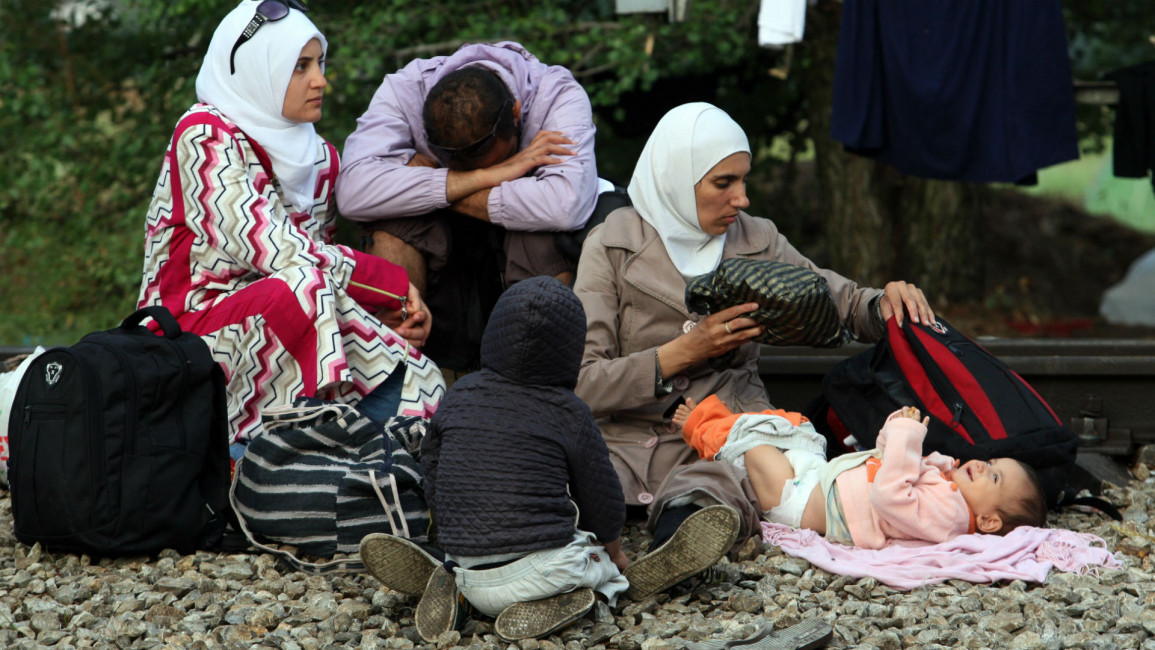3,000 refugees pass through Macedonia every day
Around 3,000 people are expected to cross through Macedonia every day for the next few months, the UN Refugees Agency told Reuters.
"We do not see any end to the influx of people in coming months," Melissa Fleming, chief spokesperson for the UN refugee agency, said.
She blamed the ongoing violence in Syria and Iraq, and worsening conditions for refugees in Turkey, Lebanon and Jordan for the crisis.
A record 2,093 refugees - mostly Syrians - crossed into the EU member state Hungary from Serbia on Monday, according to AP.
The UN expects this exodus through Macedonia and Serbia to continue as the wars in Syria and Iraq rage on.
The Syrian Observatory for Human Rights reported that Germany, the EU's largest economy - and the biggest host for Syrian refugees in Europe - has stopped enforcing certain aspects of EU immigration law.
The controversial Dublin Regulation could allow for Syrian refugees to be deported.
German Chancellor Angela Merkel and French President Francois Hollande both described the current immigration system as unworkable yesterday, and called for reforms of the EU laws.
"We must implement a unified asylum system," Hollande said. "There are moments in our European history when we face an exceptional situation. Today is an exceptional situation but it is an exceptional situation that will continue."
Anti-immgration sentiments
There has been rising anti-immigration sentiments in Europe, including Germany, which is expected to host as many as 800,000 asylum seekers this year, including tens of thousands of Syrians.
There have been a number of attacks on hostels housing refugees in eastern Germany, by neo-Nazi mobs.
This weekend, a far-right crowd attacked and injured dozens of police guarding a shelter for asylum seekers near Dresden.
A gym in eastern Germany intended to provide temporary housing for refugees was the likely target of an arson attack, police said today.
Even governments have not been immune to fears about asylum seekers.
Hungary is building a border wall to cut off the flow of refugees, which are heading to the Central European country - hoping to find refuge in wealthier economies of the EU.
Bulgaria's army stepped in on Tuesday to secure its southwest border with Macedonia and to stop passing refugees from entering its territory.
Thousands have been stranded on the in no-man's land between Greece and Macedonia for days when Skopje closed its borders.
Tragic scenes have been witnessed at the border, where refugees have tried to cross into the territory.
Macedonian border guards largely secured the border, but left women and children trapped in no-man's land with no food and forced to sleep in the open.
Two days ago, Macedonia helped ease this humanitarian crisis and opened its borders with thousands fleeing to the next country on their long and cruel journey to refuge - Serbia.
Twenty-five soldiers and light armoured vehicles will be deployed at Bulgaria's four border checkpoints with Macedonia to avoid a repeat of this, a defence ministry operations and training deputy chief told public Bulgarian radio.
"Our task will be to reinforce the controls already implemented by border police," Nikolay Karaivanov said.
Until now Bulgaria has focused on reinforcing control of its southeastern border with Turkey by sending over 1,000 extra police as well as expanding a 30-kilometre (20-mile) barrier to prevent migrants from entering.
Interior Minister Rumyana Bachvarova believed the risk of a similar stream of people as Macedonia has experienced is "relatively low".



